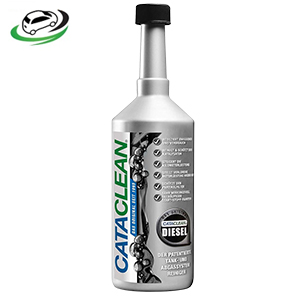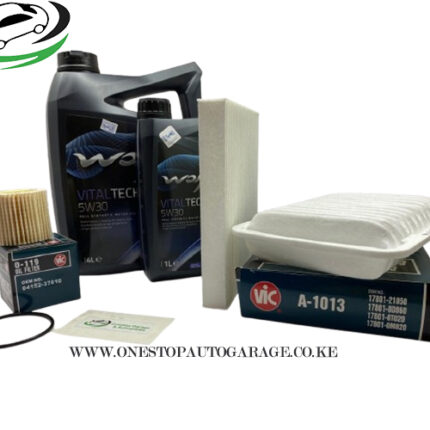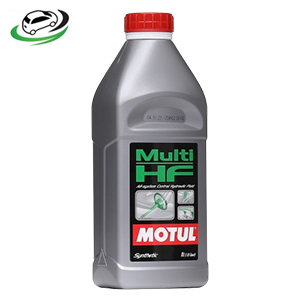-10%
Get Synthetic All-System Central Hydraulic Fluid 1L 106399
Synthetic all-system central hydraulic fluid (CHF) is a critical component in modern vehicles, particularly in their hydraulic systems. These fluids are specifically designed to work under extreme conditions, offering superior performance over conventional hydraulic fluids. The term “all-system” signifies its versatility, meaning it can be used across various hydraulic applications within the vehicle, such as power steering, suspension, braking, and convertible top systems. This comprehensive explanation will cover the properties, benefits, and maintenance of synthetic CHF, and why it’s vital for vehicle longevity and performance.
Properties of Synthetic All-System Central Hydraulic Fluid
1. Base Composition
Synthetic CHF is made from high-quality synthetic base oils, often derived from polyalphaolefins (PAOs) or esters. These synthetic base stocks provide better stability at high and low temperatures, ensuring optimal performance across a broad range of conditions. The fluid also contains advanced additive packages designed to enhance wear protection, oxidation stability, and viscosity control.
2. Temperature Stability
One of the hallmark properties of synthetic CHF is its impressive thermal stability. It can perform reliably across a wide temperature range, from -40°C to over 130°C (-40°F to 266°F), making it ideal for extreme weather conditions. In cold temperatures, synthetic CHF maintains a lower viscosity, ensuring smooth operation during startup. In hot climates, it resists thermal breakdown, preserving its lubricating and hydraulic capabilities.
3. Low Foaming and High Shear Stability
Synthetic CHF is formulated to resist foaming, which can occur when air is introduced into the fluid system. Excessive foaming leads to erratic system performance, especially in hydraulic systems like power steering and braking. The high shear stability of synthetic CHF means that it maintains its viscosity and protective properties even under high-pressure conditions, ensuring consistent performance.
4. Corrosion and Wear Protection
Synthetic CHF contains anti-wear and anti-corrosion additives that protect critical components from damage. Metal surfaces within hydraulic systems are prone to wear and corrosion due to constant friction and exposure to moisture. The fluid forms a protective film on metal surfaces, reducing the risk of premature component failure and extending the system’s lifespan.
5. Low Viscosity Index
Synthetic CHF has a low viscosity index, which means it flows easily at both high and low temperatures. This property ensures that the hydraulic system remains responsive under various operational conditions. A low viscosity index is especially important in systems like power steering, where fluid responsiveness directly impacts the ease of maneuvering the vehicle.
Benefits of Synthetic All-System Central Hydraulic Fluid
1. Versatility Across Systems
Synthetic CHF can be used across multiple hydraulic systems within a vehicle, eliminating the need for separate fluids for different systems. This includes power steering, braking, suspension, and convertible top systems, which simplifies maintenance and reduces the risk of using the wrong fluid for a particular system.
2. Enhanced Performance and Efficiency
Due to its superior viscosity control and thermal stability, synthetic CHF delivers enhanced performance across hydraulic systems. For example, in power steering systems, the fluid ensures smooth and effortless steering by reducing the resistance between moving parts. In suspension systems, it helps in damping vibrations and shocks more effectively, leading to a more comfortable ride.
3. Prolonged System Life
The advanced additive packages in synthetic CHF provide excellent protection against wear, corrosion, and oxidation. This protection helps extend the life of critical hydraulic components like pumps, valves, seals, and hoses. For example, in a braking system, synthetic CHF ensures that the master cylinder, calipers, and brake lines remain protected from moisture and corrosion, reducing the likelihood of brake failure.
4. High Oxidation Resistance
Synthetic CHF is designed to resist oxidation, which occurs when the fluid reacts with oxygen, leading to sludge formation and degraded performance. High oxidation resistance ensures that the fluid remains clean and effective for longer, reducing the need for frequent fluid changes and improving overall system reliability.
5. Improved Cold Weather Performance
In colder climates, conventional hydraulic fluids can thicken, leading to sluggish system performance. Synthetic CHF, on the other hand, maintains its low viscosity in freezing temperatures, ensuring smooth and reliable operation. This is particularly important in power steering and suspension systems, where immediate response is crucial for safety and comfort.
6. Compatibility with Materials
Synthetic CHF is designed to be compatible with the various materials used in hydraulic system components, such as seals, hoses, and gaskets. This compatibility prevents issues like fluid leakage and seal degradation, which can occur when incompatible fluids cause rubber components to swell or harden.
Maintenance of Synthetic All-System Central Hydraulic Fluid
1. Fluid Level Checks
Regularly checking the fluid level is essential to ensure that the hydraulic systems are functioning correctly. Low fluid levels can lead to system malfunctions, including stiff steering or poor braking performance. Most vehicles have a dipstick or reservoir markings for easy monitoring of CHF levels. If the level is low, it’s crucial to top it up with the correct type of synthetic CHF to avoid mixing incompatible fluids.
2. Fluid Condition Monitoring
It’s important to inspect the condition of the CHF at regular intervals. Synthetic CHF typically has a longer service life than conventional fluids, but it can still degrade over time due to contamination, oxidation, or thermal breakdown. Fluid that appears discolored, cloudy, or has a burnt smell should be replaced, as degraded fluid can lead to poor system performance or damage.
3. Regular Fluid Replacement
While synthetic CHF has a longer lifespan, it’s still necessary to follow the manufacturer’s recommended service intervals for fluid replacement. Over time, the additives in the fluid can deplete, and contaminants can build up. Replacing the fluid at regular intervals ensures optimal system performance and extends the life of hydraulic components. In power steering systems, for example, fresh fluid can prevent the pump from working harder than necessary, reducing the risk of failure.
4. System Bleeding
After replacing or topping up CHF, it may be necessary to bleed the hydraulic system to remove any air bubbles that may have entered the fluid lines. Air in the hydraulic system can lead to erratic performance, such as spongy brakes or jerky steering. Proper bleeding ensures that the fluid flows smoothly and consistently throughout the system.
5. Leak Inspection
Regularly inspecting the hydraulic system for leaks is essential for maintaining proper fluid levels and system performance. Synthetic CHF is typically brightly colored, making it easy to spot leaks around seals, hoses, or connections. If a leak is detected, it’s crucial to repair it immediately to prevent further damage to the system and avoid fluid contamination.
6. Compatibility with OEM Recommendations
When replacing or adding CHF, it’s important to use a product that meets the vehicle manufacturer’s specifications. Using the wrong type of fluid can lead to system damage or poor performance. Synthetic CHF is often recommended by OEMs (Original Equipment Manufacturers) due to its superior properties, but it’s always best to consult the vehicle’s manual to ensure compatibility.
Conclusion
Synthetic all-system central hydraulic fluid is a high-performance fluid designed to meet the demands of modern hydraulic systems. Its superior properties, including thermal stability, oxidation resistance, and wear protection, make it an ideal choice for a variety of applications, from power steering to suspension systems. The versatility of synthetic CHF allows it to be used across multiple systems within a vehicle, simplifying maintenance and improving overall system performance. Proper maintenance of CHF, including regular fluid checks, replacements, and system inspections, ensures that hydraulic systems function reliably and efficiently, ultimately prolonging the life of the vehicle and enhancing driving comfort.
Follow us on Facebook for more parts.



